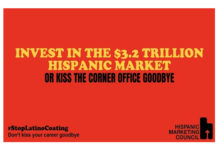The number of Black and ethnic minority workers in insecure work has more than doubled over the last decade (2011 to 2022) from 360,200 to 836,340, according to new analysis published by the TUC.
The chance of a Black and ethnic minority worker being in an insecure job has also increased, with one in six in this position now, compared to one in eight back in 2011. This “boom” in Black and minority ethnic workers in insecure work accounts for the vast majority of the overall increase in insecure workers over the last decade, said the TUC. They also account for two thirds of the growth of insecure workers in this period, despite Black and minority ethnic workers making up just 14% of the overall workforce.
NATION OF INSECURE JOBS
The UK is becoming a “nation of insecure jobs”, with precarious and low-paid work widespread in all regions and nations of the UK, said the TUC. Insecure work is typically low-paid, and those in insecure jobs have fewer rights and protections. This means their hours can be subject to the whims of managers and they can lose work without notice.
There are 3.9 million people in insecure employment – that’s one in nine across the workforce. London (13.3%) and the South West (12.7%) have the highest proportion of people working in insecure jobs. The industries with the highest proportion of insecure work are the elementary occupations, caring, and leisure services, and process, plant and machine operatives. Low-paid work is increasingly insecure work. Back in 2011, one in eight low paid jobs were insecure, but by the end of 2022, one in five low paid jobs were insecure.
STARK INEQUALITIES
The disproportionate number of Black and minority ethnic workers in insecure work shines a light on “stark inequalities” in the labour market, noted the TUC. The proportion of Black and minority ethnic workers in insecure work significantly increased between 2011 and 2022, while the proportion of white workers in insecure work remained relatively stable:
- The proportion of Black and minority ethnic workers in insecure work increased from 12.2% to 17.8%.
- The proportion of white workers in insecure work remained at around the same level – going from 10.5% to 10.8%.
Black and minority ethnic workers are significantly more likely to be in insecure work compared to White workers:
- Black and minority ethnic men are almost twice as likely as White men to be in insecure work (19.6% compared to 11.7% White men).
- Black and minority ethnic women are much more likely than White women to be in insecure work (15.7% compared to 9.9% White women).
While Black and minority ethnic employment grew between 2011 and 2022 by 1.7 million, much of the increase in employment was in low-paid and precarious insecure work. Between 2011 and 2022, almost a third (27%) of the increase in Black and minority ethnic employment was in insecure work, compared to just 16% for the increase in White employment.
The explosion in the gig economy partly explains the significant rise in Black and minority ethnic insecure employment – with the number of Black and minority ethnic workers in low-paid self-employment surging over the past decade, according to the research. TUC’s analysis has shown a particular rise in low paid self-employment in delivery and driving among Black and minority ethnic men.

STRUCTURAL RACISM
The TUC believes that the overrepresentation of Black and minority ethnic workers in insecure work shows “structural racism in action”. The union body said that “Black and minority ethnic workers experience racism at every stage of the labour market. This includes discrimination in recruitment processes, lower opportunities for training and development compared to white workers, being unfairly disciplined, and being typecast into specific roles often with less favourable terms and pay.
“No matter your background, everyone deserves to be treated with dignity and respect at work. But too many Black and ethnic minority workers are trapped in low-paid, insecure jobs with limited rights and protections, and treated like disposable labour,” said TUC General Secretary Paul Nowak. “The massive and disproportionate concentration of Black and ethnic minority workers in insecure work – like in the gig economy – is structural racism in action. Across the labour market, and at every stage, Black and minority ethnic workers face discrimination and persistent barriers at work. From not getting the job despite being qualified for the role, to being passed over for promotion, to being unfairly disciplined at work. These barriers lead to stark inequalities – and it’s why we’re seeing Black and ethnic minority workers disproportionately in the worst jobs with the worst pay and conditions.”
PERSISTENT BARRIERS
These “persistent barriers at work” are “holding back” Black and minority ethnic workers across different roles and occupations, leaving disproportionate numbers of Black and minority ethnic workers stuck in low-paid jobs, with limited rights and on precarious contracts which mean they can find themselves out of work without notice.
Recent TUC polling revealed around half (49%) of Black and minority ethnic workers said they had experienced at least one of the following forms of discrimination at work:
- 1 in 7 (14%) Black and minority ethnic workers reported facing unfair criticism in the last five years.
- 1 in 9 (11%) said they were given an unfair performance assessment.
- 1 in 13 (8%) told the TUC they were unfairly disciplined at work.
- 1 in 14 (7%) said they have been subjected to excessive surveillance or scrutiny.
- 1 in 8 (12%) Black and minority ethnic workers said they were denied promotions.
- 1 in 8 (12%) Black and minority ethnic workers reported being given harder or less popular work tasks than white colleagues.
- 1 in 11 (9%) told the TUC they had their requests for training and development opportunities turned down.
GOVERNMENT ACTION NEEDED
“It’s time to end the scourge of insecure work once and for all – that’s how we start to tackle the discrimination that holds Black and minority ethnic workers back,” stated Nowak. “That means banning exploitative zero hours contracts. It means delivering fair pay agreements to lift pay and standards across whole industries. And it means placing a duty on employers to report their ethnicity pay gap and take action to close it.”
To help tackle structural racism in the labour market and end the scourge of insecure work, the TUC is calling for the government to:
- Ban the abusive use of zero-hours contracts by giving workers the right to a contract reflecting their normal hours of work and ensure all workers receive adequate notice of shifts, and compensation when shifts are cancelled at short notice.
- Introduce fair pay agreements to raise the floor of pay and conditions in sectors blighted by insecure work.
- Crack down on bogus self-employment by introducing a statutory presumption that all individuals will qualify for employment rights unless the employer can demonstrate that they are genuinely self-employed.
- End the two-tier workforce and reform the rules on employment status to ensure that all workers benefit from the same employment rights, including statutory redundancy pay, protection from unfair dismissal, family-friendly rights, sick pay and rights to flexible working.
- Give workers a day one right to flexible working – not just a right to request.
- Establish a comprehensive ethnicity monitoring system covering mandatory ethnicity pay gap reporting, recruitment, retention, promotion, pay and grading, access to training, performance management and discipline and grievance procedures.
Click here to access the full report.




































